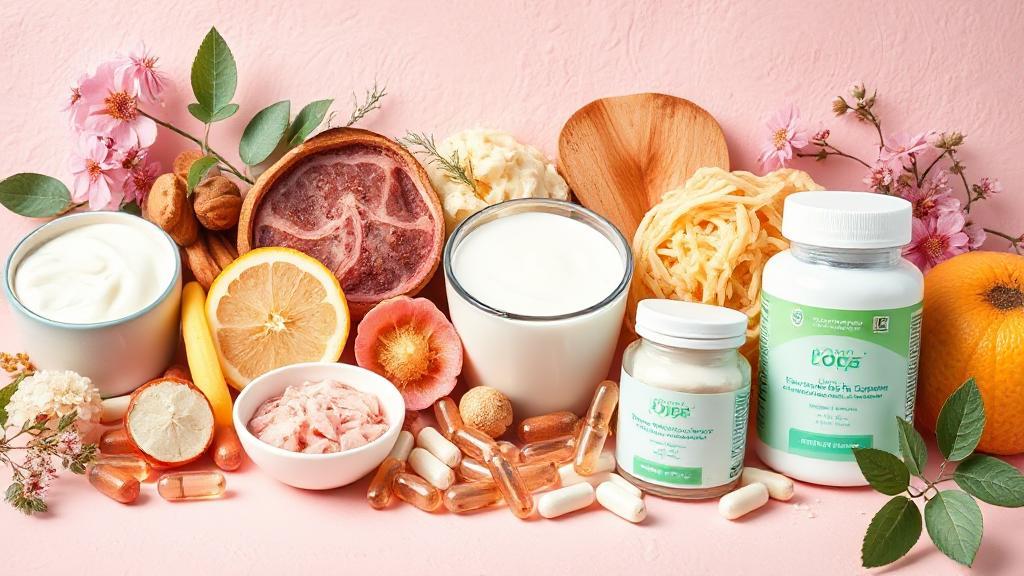The Best Probiotics for Women: Top Strains and Supplements for Optimal Health
Probiotics have become a cornerstone of women’s wellness, offering targeted support for digestive, immune, and reproductive health. With a growing body of research and a vast array of supplements on the market, it can be challenging to know which probiotic strains and products are best suited for women’s unique needs. This comprehensive guide synthesizes expert insights and evidence-based recommendations to help you make informed choices for optimal health.
What Are Probiotics and Why Do Women Need Them?
Probiotics are live microorganisms—primarily beneficial bacteria and yeasts—that, when consumed in adequate amounts, confer health benefits to the host. They help maintain a balanced gut microbiome, which is crucial for digestion, immune function, and even mental well-being. For women, probiotics also play a vital role in supporting vaginal and urinary tract health, hormonal balance, and protection against infections.
Key benefits for women include:
- Supporting digestive health and regularity
- Enhancing immune function
- Preventing and managing urinary tract infections (UTIs)
- Promoting vaginal health and reducing the risk of yeast and bacterial infections
- Supporting mood and the gut-brain axis
For a deeper dive into the basics, see Top Probiotics for Improving Gut Health.
Top Probiotic Strains for Women
Not all probiotics are created equal. The benefits of probiotics are highly strain-specific, and certain strains have been shown to be particularly effective for women’s health.
Lactobacillus Strains: Vaginal and Digestive Health
-
Lactobacillus rhamnosus GR-1 & Lactobacillus reuteri RC-14
These strains are extensively studied for their ability to colonize the vaginal tract, restore balance after antibiotic use, and reduce the recurrence of bacterial vaginosis (BV) and yeast infections. They work synergistically to promote urogenital health. -
Lactobacillus crispatus
Often the most abundant Lactobacillus species in healthy women, L. crispatus is strongly associated with vaginal health and a reduced risk of infections, including recurrent UTIs. -
Lactobacillus acidophilus
Supports both gut and vaginal health by maintaining acidity and competing with harmful bacteria. -
Lactobacillus gasseri
Inhibits pathogens like Gardnerella vaginalis (BV) and Candida albicans (yeast), and may support metabolic health. -
Lactobacillus plantarum
Beneficial for gut health, improving digestion, and reducing bloating, with some strains supporting vaginal and immune health.
Bifidobacterium Strains: Gut and Immune Champions
-
Bifidobacterium lactis
Enhances immune function, improves digestion, and alleviates constipation. -
Bifidobacterium longum
Supports a healthy gut environment, may reduce inflammation, and is linked to improved mood and stress reduction. -
Bifidobacterium infantis
Important for infant gut health and can help adults with IBS symptoms.
Other Notable Probiotics
- Saccharomyces boulardii
A beneficial yeast effective for preventing and treating diarrhea, including antibiotic-associated and traveler’s diarrhea.
Choosing the Right Probiotic Supplement
With so many options available, here’s what to consider when selecting a probiotic:
- Strain Specificity: Look for supplements that list the exact strains (e.g., L. rhamnosus GR-1, not just L. rhamnosus).
- CFU Count: Effective products typically range from 1 billion to 50 billion CFUs per serving. The optimal count depends on the strains and health concern.
- Targeted Formulas: Many brands offer “Women’s Health” blends with strains known for vaginal and urinary tract benefits.
- Survivability: Enteric-coated capsules and robust strains ensure probiotics survive stomach acid to reach the intestines.
- Third-Party Testing: Certifications from organizations like NSF International or USP ensure quality and potency.
- Storage Requirements: Some probiotics require refrigeration; others are shelf-stable.
- Prebiotics: Some supplements include prebiotics (e.g., inulin, FOS) to feed beneficial bacteria.
For more on natural digestive support, see Effective Ways to Improve Digestion Naturally.
Top Probiotic Supplements for Women (2025)
Probiotic-Rich Foods for Women
Supplements aren’t the only way to boost your beneficial bacteria. Incorporate these fermented foods into your diet for additional microbiome support:
For more on dietary approaches, see Top Benefits of Adopting a Plant-Based Diet.
Special Considerations for Different Life Stages
Reproductive Years
- Focus on strains that support vaginal pH balance and urinary tract health (e.g., L. crispatus, L. gasseri).
Pregnancy and Postpartum
- Probiotics may support maternal digestive health and influence infant microbiome development. Some evidence suggests reduced risk of gestational diabetes and preeclampsia.
Menopause and Beyond
- Strains that support bone health, manage weight changes, and address digestive shifts are beneficial.
Tips for Maximizing Probiotic Benefits
- Consistency: Take your probiotic at the same time daily.
- Pair with Prebiotics: Eat fiber-rich foods like garlic, onions, and bananas.
- Mind Your Diet: A balanced, fiber-rich diet supports a healthy microbiome.
- Consult Your Healthcare Provider: Especially if you have underlying health conditions, are pregnant, or are immunocompromised.
For additional immune support, see Effective Ways to Boost Your Immune System Naturally.
Frequently Asked Questions
Are probiotics safe for everyone?
Most people can safely take probiotics, but those with compromised immune systems or serious illnesses should consult a healthcare professional first.
Can I get probiotics from food?
Yes! Fermented foods like yogurt, kefir, sauerkraut, kimchi, and miso are excellent sources.
How long does it take to notice benefits?
It may take several weeks of consistent use to notice improvements in digestion, immunity, or vaginal health.
Conclusion
Probiotics offer a promising, research-backed approach to supporting women’s health at every stage of life. By choosing the right strains and high-quality supplements—or incorporating probiotic-rich foods—you can help maintain a balanced microbiome and enjoy optimal well-being. Always consult with your healthcare provider before starting any new supplement regimen.
For more on related topics, explore:
- Natural Ways to Detox Your Body Safely and Effectively
- Top Supplements for Managing Anxiety Symptoms
- Top Vitamins That Boost Energy Levels Naturally
- Effective Strategies to Reduce Inflammation Naturally
- Effective Strategies to Improve Your Sleep Quality
- Common Signs and Symptoms of Vitamin D Deficiency
Updated: May 27, 2025
